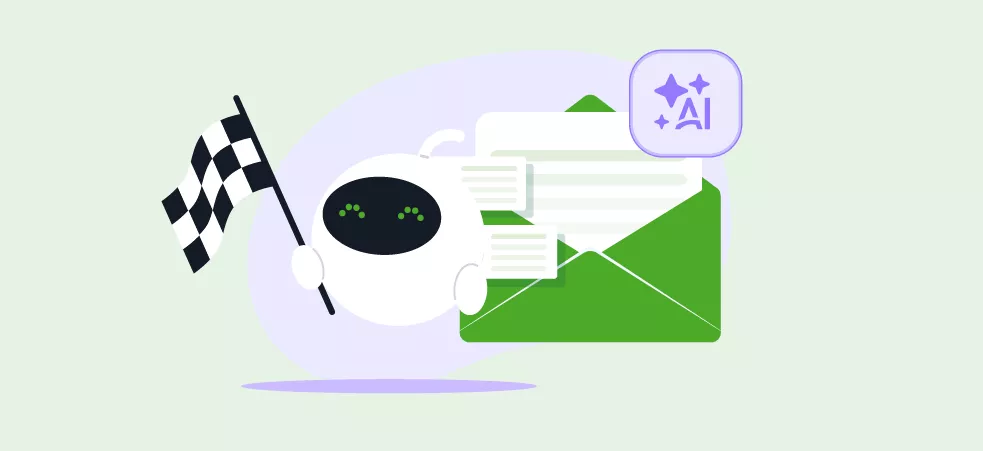
How to Tackle Market Segmentation Like a Pro
Quick question. Do you think it’s easier to try and sell to a large group of people that all have different tastes, desires, and aspirations? Or is it much more efficient to sell to a small group that all share similar characteristics?
It’s a no-brainer, right?
When you segment your market, you’ll be catering to a small, identified subset of your audience which has been shown to improve results. For instance, a Research conducted by Campaign Monitor found that marketing professionals saw a 760% revenue increase after implementing segmented campaigns. Wow!
If you’re interested in applying market segmentation to boost your sales and stimulate growth, then read on as we have some handy, actionable tips to share.
What is market segmentation?
In a nutshell, market segmentation involves separating your whole audience or market into smaller subgroups that share specific characteristics, beliefs, behaviours, or values.
For instance, an eCommerce company that sells sporting equipment may divide their audience up into segments that include basketball fans, ice hockey fans, tennis fans, etc. allowing them to target email campaigns and social selling of specific items to relevant customers.
If you neglect market segmentation, then you run the risk of falling behind your competition.

In other words, the stakes couldn’t be higher. Therefore, the question arises why do so many companies neglect market segmentation?
One of the main reasons is that there is confusion as to how to do it properly. Many people understand the term but don’t know how to implement a successful market segmentation strategy and follow it through.
The 5 types of market segmentation.
In order to build a coherent and effective strategy, first, you must decide which type of segmentation to use. You can apply a combination of types to suit your business and the overall market.
The 5 types of market segmentation are as follows:
- Demographic segmentation – based on gender, age, income, education, religion, social status, family situations, etc.
- Geographic segmentation – based on location or region and how that may affect buying habits, e.g. weather, political situation, attitudes, etc.
- Psychographic segmentation – based on lifestyle, values, opinions, and social perception
- Behavioural segmentation – based on the perceived benefits of the product or service and the individual’s buying habits
- Firmographics segmentation – for B2B market segmentation and includes business attributes such as industry, sales volume, methodology practices, etc.
How to create a market segmentation strategy.
Once the segmentation type (or types) has been identified, the next step is to create a marketing segmentation strategy.
The following steps will help prime you for success.
- Targeting and positioning – work out how your product or service meets the demands or desires of each market segment in a better way or different to your competition.
- Estimate the market segment size – use market research to find out the approximate size and value of the market segment.
- Calculate potential ROI – compare potential profit against spending to work out your marketing budget for each market segment.
- Plan market penetration – identify ways to reach the target market segment, e.g. email marketing, social media plan, direct mail, telesales, etc.
Top tips for market success.
Use market segmentation to build audience relationships.
In today’s digital age, people are looking for brands that make the extra effort to engage them. It’s no good sending out dry sales messages and content. Companies can use market segmentation to tailor their content directly to the interests of the customer profile. Building relationships with customers helps to both increase sales and boost brand loyalty. Combining market segmentation with CRM software is a potent mix that will lead to a much better customer experience.

Ensure data compliance
Making sure that private data is kept private is a priority for marketers in today’s world. It is important that companies comply with GDPR and other regional regulations. Unnecessary collection of data is unprofessional and, in some cases, may be illegal. Besides, the whole point of market segmentation is to streamline your marketing efforts, so there is little point in analyzing unnecessary data.
Differentiate your campaigns
The whole purpose of market segmentation is to identify different groups of customers. A mistake many companies make is to segment their market, and then proceed to use only slight variations in their marketing campaigns. Often, to get the best results, you will need to formulate completely different value propositions and marketing messages, depending on the segment you are targeting. In other words, avoid generic campaigns and messaging.
Evaluate the success of your market segmentation
Measurement and analysis are the keys to the success of all marketing strategies and campaigns. First, you should set achievable targets and stretch goals. Next, you need a system in place to measure and record key metrics such as open rates, click-throughs, and conversion rates. Crucially, you need to record these individually for each separate segment. Identify underperforming segments and try adjusting the strategy and campaign messaging. This should be an ongoing process.

Market segmentation aligned with a CRM – a powerful mix
Marketing segmentation can bring a range of benefits, including increased customer engagement and responsiveness, increased revenue, increased ROI, and accelerated growth.
However, it needs to be done right. A market segmentation strategy needs to be carefully planned, implemented and measured.
One way to make sure that you are using market segmentation to its highest potential is to use a data-driven strategy and combine it with a CRM solution, such as efficy. efficy helps you to personalise customer journeys and proactively engage customers in each market segment.
To find out how efficy can help your business to thrive, book a demo today.
Download for free!
Learn more about:





